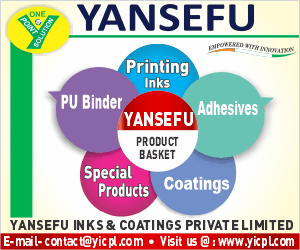
In a press release shared with The Packman, Jigish Doshi, president, Plastindia Foundation says that Plastindia Foundation wholeheartedly supports the vision of the prime minister for improving the environment-related issues in the country and stands with him together in rebuilding India through his various initiatives.
However, Doshi says one of the major problems being faced by the plastic industry is the proposal of banning the single-use of plastic in India. As is well known, the plastic industry is one of the big sectors in India, which is not only labor-intensive but also involves huge capital expenditure (CAPEX) in terms of plant & machinery, and employment opportunities and contributes significantly to the nation’s exchequer. This sector comprises a majority of MSMEs, which involves thousands of business units as well as the employees and their families are heavily dependent on it, for their livelihood. The ban on single-use plastics, particularly for those business units, which manufactures single/standalone product, will be facing adverse impact both on the business as well as the livelihood of the people.

The overall view of the plastic industry, in general, is that these business units manufacturing single/standalone product which falls under the banned category will face an unprecedented situation in terms of economic and fiscal issues. Hence, these manufacturers need to be protected by the government by extending support in terms of the policy as well as fiscal incentives. One of the policy guidelines possibly is to extend some more time to the manufacturing units to enable them to comply with the order complemented with financial support from the government across the country.
Also, the industry and society will need viable alternatives to single-use plastics products. While for plastic carry bags, it is only a matter of increasing the thickness to 120 microns, finding alternatives for plastic plates and cutleries will be a challenge unless the thickness of these items is increased in order to make them reusable/recyclable. The plastics industry is already working towards finding alternatives for thermocol (polystyrene) based products. To achieve the desired objective, we will need to make a significant investment in R&D and innovative technology to develop alternative products which will take some time. The plastics industry is already working in this direction.
Moreover, 99% of plastics are recyclable. The problem is that the ragpickers don’t have the technology or are not incentivized enough to collect small plastic waste like straws. Therefore, the need of the hour is a waste management solution and recycling technology that ensures proper collection and recycling of plastic waste. The ragpickers who play a vital role in this process should also be given proper incentives.
It is important to remember that India is a huge country with each region having its unique challenges and the same solution may not apply to all. We need localized solutions to ensure that plastic waste is collected and recycled.
While we support the government, imposing a ban on single-use plastics is not the only solution. The government, the industry, and the general public need to work together to find alternatives. Waste management solutions and recycling technologies need to be put in place. Only then can we combat pollution and protect the environment.









